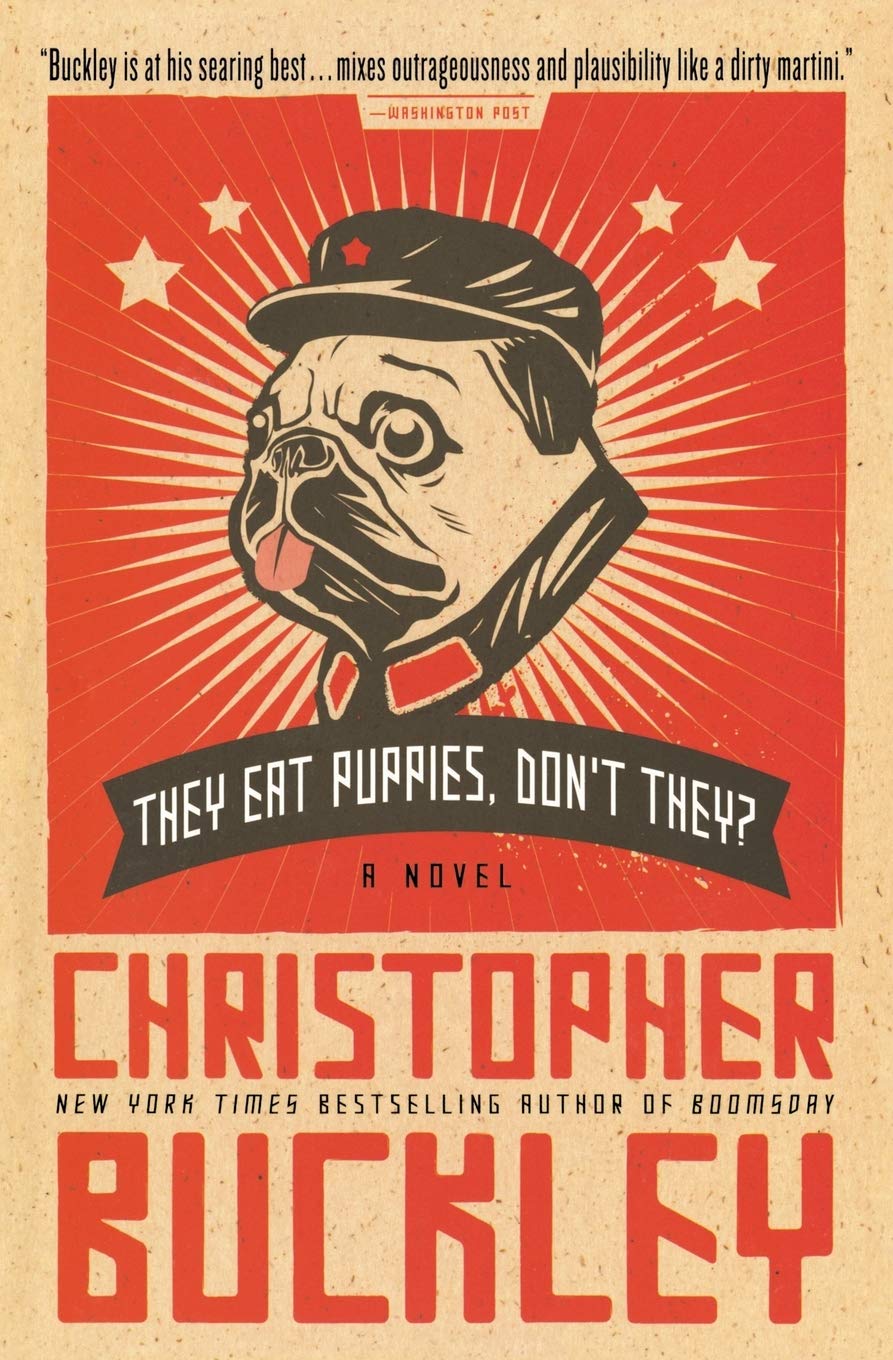Knocked down a couple of fiction books this weekend while traveling to and from Southeast LinuxFest. They Eat Puppies, Don’t They? by Christopher Buckley, and No Country for Old Men by Cormac McCarthy.
I’ve been a fan of Christopher Buckley since I picked up Little Green Men years ago, but he’s probably best known for Thank You for Smoking. (It may be a cliche, but the book truly is better than the film – and the film’s plot diverges pretty heavily from the novel.)
They Eat Puppies is billed as political satire of the relationship between the U.S. and China, but it’s really a farce using China and U.S. relations as a framework. It was a quick read, I got a few chuckles out of it, but it’s far from Buckley’s best work. It’s sitcom-quality humor, and makes for good light reading, but I would be hard-pressed to give it a strong recommendation. If you like Buckley’s other work and want some lightweight reading, give it a try. If you haven’t read Buckley’s other work, pick up Thank You for Smoking and save They Eat Puppies for a long flight when you really just need a distraction. (It was a great palette cleanser after finishing The Corner.)
No Country for Old Men is a quick read, but I don’t think you could call it light reading. I suppose it’s a great novel for people who find Steven King horror novels too uplifting.
On the surface, No Country is a tale about a welder who finds a satchel full of cash at the scene of a drug deal gone bad – and the unrelenting assassin who comes after the money and drugs. It goes deeper than that, though. The primary themes is societal decay, and how one person chooses to react in the face of the decay.
Having seen the movie, I was eager to read the book and get a little deeper into the characters and gather some understanding of Anton Chigurh. On that front, I was disappointed, as the book doesn’t really get into any deep characterizations or go into Chigurh’s thoughts. If you’ve seen the film, you can probably safely skip the book, unless you just really enjoyed the film and would like to relive it with a bit more detail. (I will say that the book is totally unambiguous on a point that the film is slightly queasy about showing explicitly.)
(Post rescued from the dustbin of history by Archive.org and copy/paste. Originally posted on Zonker.net.)
